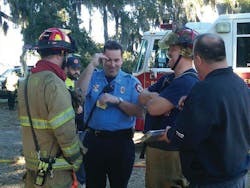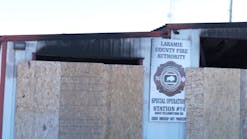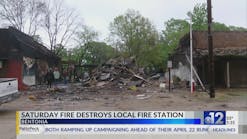Firefighters who do prevention consistently ask how they can get support from those firefighters who are on the rigs. Fire stations abound with hallway echoes of “those prevention people” and “those suppression people!” (I am being nice, G-rated and politically correct here.) Any attempt to branch over or “cross train” have only resulted in hurt feelings and little forward momentum in the harmonious cooperation needed for a prevention-based departmental culture.
There is one successful approach that can be taken here. It is the same approach that the fire service has been using to accept any type of progress, change and innovation... It has been used to usher in new ideas and inventions (from the acceptance of the combustion engine to the use of thermal imaging) in a culture that is resistant to change anything that got them safely out of the last fire. It is the problem solver of all times and, if it were ever used in the Oval Office or during a presidential cabinet meeting, we would no doubt have world peace, economic stability and bi-partisan cooperation.
The solution to this prevention versus suppression debate is simple: firehouse humor.
I am an engineer/paramedic riding the rigs, yet I believe in prevention with all my professional, moral and ethical being. I teach it, preach it and believe it. This is no big secret. When you add in firehouse humor, my shifts can get very entertaining and downright hilarious. One department instructor would not start a suppression training class that I was in until he sounded the smoke detector and explained the evacuation plan. Hey he was talking about it – so whatever it takes.
This humor is comical and always entertaining, but the resulting back and forth can get pretty deep and thought provoking for all. Because it is prevention-based humor, no blood has been spilled – that would be counterproductive to my arguments; however through firehouse humor my brethren (sisters included) have successfully challenged some of my thoughts and beliefs, and I think on occasion I have done the same for (some of )them. But again, we’re discussing an important topic, becoming more knowledgeable and appreciative of views, and solving serious world problems the only way we in the fire service know how to do it – bust chops.
Then one day the humor accidently flipped around and I was shocked at the result – I think we all were. I have always said and believed (though I didn’t create this quote) “Suppression is the failure of education,” and have always told our firefighters to stop spending their career failing – then of course the humor starts. But I honestly believe to my core, that if we want to truly save lives and protect property, and protect our communities, and provide a valued service to the daily quality of life of our citizens, then prevention is where we need to be.
Pre-planning Humor Hammers Home Prevention Lessons
On this particular day the revelation by humor went something like this:
Two engine companies met at a local daycare in one of our rural areas to do a pre-incident survey and discuss some suppression topics like strategy and tactics. This daycare served a rural, largely poor area of our district and the building showed it. The crews walked the exterior, marked off fire hydrants and did a quick walk through of the inside.
They looked at this building the way only firefighters can and absorbed every detail and examined every risk. They were taking their experience, training and professional education and applying it to the building. These were suppression-orientated firefighters, some of them having been around awhile and have been in the “big ones” we have had over the years. They have been there, done that, and have more t-shirts than they care to collect; they have saved lives and some have been decorated; and yet they could clearly see prevention issues.
After the survey was complete we met outside to discuss what we learned, what we thought and how that would apply if we had a fire at this location. But, of course, you can’t get serious about anything in a firehouse until you get the humor out of the way – and here it came. Right off the bat they started on me and prevention – which in firehouse translation means this was something important to them. To summarize the tongue-in-cheek discussion, they all seemed to be concerned for my cardiac health after seeing this building, and they listed every fire prevention issue that their experienced suppression eyes saw, and wanted to know if I would be ok or if I was now having chest pain, shortness of breath, feeling faint or needed to take a sick day.
So to continue the humor, I changed it up a bit. My intention was just that – humor; but the end result was rather interesting.
Instead of my usual pulpit preaching to the “suppression junkies” on the need for prevention through inspections and education (my usual repertoire to which they were surely prepared to counter with humors challenges that would have both entertained and educated), I simply stated “I don’t care.”
And a hush fell across the crowd…
In as serious as a tone I could muster I asked, “Why?” I pointed to the V-type building construction with the drooping truss roof, filled to capacity with sleeping children and asked, “Why fix it? Let’s just go back to the station and wait for the fire call when these kids are trapped. We could rescue at least 25 percent of them before this match stick goes up. Then we’d be heroes! And that’s why we do this job – to be heroes, right? If there is no fire then how can we be heroes?”
The silence was deafening… so I continued!
“Then we can scream to our taxpayers that we need bigger fire trucks and more people so we can respond to more of these fires with people trapped and save maybe 50 percent next time. With all these fires we can hug each other and call one another brother. You’re not enough of my ‘brother’ now, we have to let each other be put at risk because that is the true ‘brotherhood’ right; allowing risk to happen and then putting each other in the middle so we have stories to tell? ”
The reaction I got was pretty amazing.
These hardcore suppression firefighters were now arguing with me (very successfully and forcefully I might add) about the need for prevention! The passion in their eyes and conviction in their speech said it all. They argued every point I made with such fervor, especially at my interpretation of what the brotherhood is, that anyone of them could have been the star keynote speaker at any NFPA prevention conference. I actually think some of them may have even read one of my articles at some point.
It was amazing what they knew about (and even believed about) prevention; and that underneath all that soot and char, they were simply people who honestly cared about their jobs and what their responsibility really means when they put that badge on their chest. That passion was/is there all the time, it just had to be uncovered and brought to the surface.
What started out as simple firehouse humor, resulted in an amazing outcome that did what humor is designed to do – forge our brotherhood; bonding us in the revelation that prevention/suppression is not about “us” against “them.” Our bond is in caring for those we protect and those sitting to the left and right of us on the rig; the debate is only on perspective and application of how that is accomplished. Through humor, progress was made in erasing that imaginary line.
While I believe all parties walked away that day shaking their head in bewilderment asking themselves “what the heck just happened,” through the use of firehouse humor we again made progress in solving the world’s problems and developed an appreciation for different points of view. It was an educational experience where the salty/experienced veterans met the new “prevention first” generation and found a common ground on which our department can build a new solid structure for our future generations of firefighters to grow into.
When one believes that something is “right” and the “way it needs to be done” down to their soul (especially in our business where saved lives are the end result that we all seek), those opinions are not easily swayed over a cup of coffee or a 30-minute presentation during departmental training, nor will any amount of force, insult or argument change anything. More often, the separation deepens, feelings are hurt and the problem worsens.
We all come to work with the same passionate intention to protect others; and that is the basis from which to work while trying to sway the “rig riders” to appreciate and support the role of prevention. Humor, as dark and direct as it can be, is a tool even the most scarred veteran can appreciate and indentify with. It can be disarming and non-threatening, and it’s an accepted conflict resolution tool used to advance any “theory.” For those of us in prevention, it is a flanking attack in lieu of the always less successful, and more bloody, frontal assault.
It was a moment I will not soon forget; if for no other reason than the humor that is surely coming my way once this article is printed…and that’s ok…bring it on!






